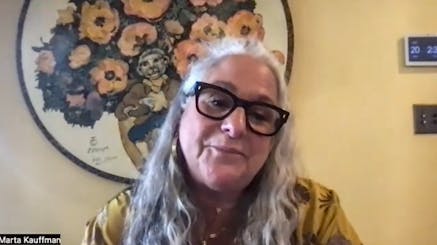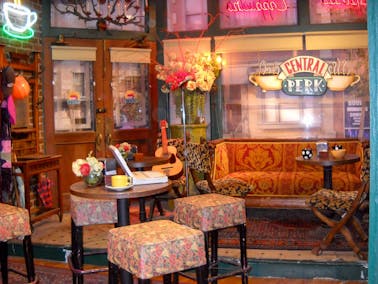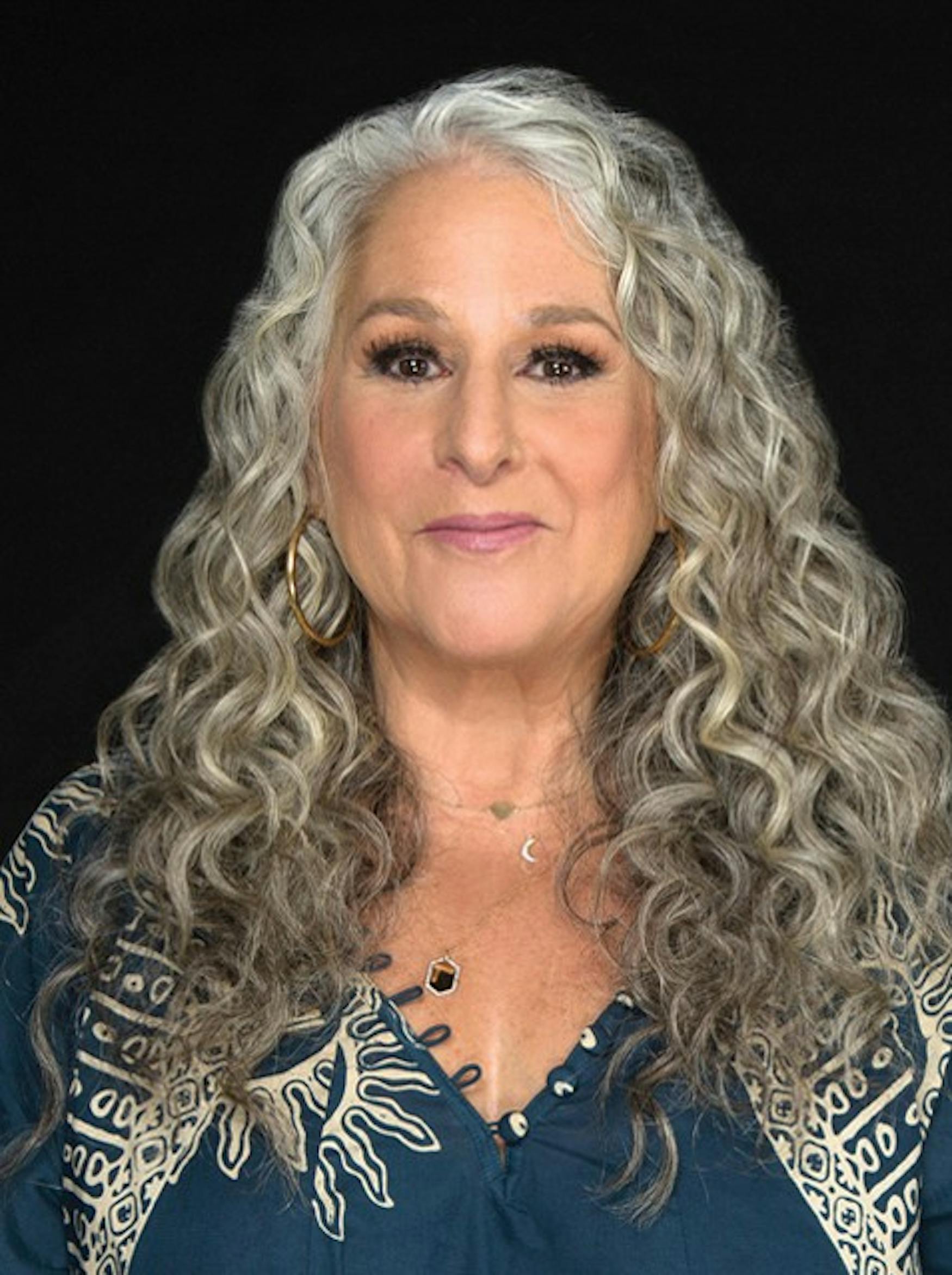’Cause you’re there for me too: a conversation with ‘Friends’ co-creator Marta Kauffman
Television writer and producer Marta Kauffman ’78 H’20 is speaking at Brandeis’ upcoming [Re]Commencement ceremony. She talked to the Justice about her time at the University and quashed, once and for all, one of the most popular Brandeis myths.
When Marta Kauffman ’78 H’20 enrolled as a student at Brandeis, there was no way for her to know where her four years at the University would take her. Since her time at Brandeis, she has amassed Emmy nominations and critical acclaim, but before she was the co-creator of the hit television series “Friends” and “Grace and Frankie,” among others, she was a student, figuring out who she was and what she wanted to do with her life.
During her search for the right college, Kauffman knew that Brandeis had much to offer her. First and foremost, it was a place where she could feel secure in her Judaism. “I grew up in a neighborhood that was pretty antisemitic,” she told the Justice during an April 20 Zoom interview, describing an incident where her AP French teacher told Kauffman that she “made French ugly and guttural like Hebrew.” Kauffman’s desire to find a more accepting community was reaffirmed when she attended Jewish summer camp, as it was the first time she was in a place where she felt it was okay to be Jewish. She remembers thinking during her time at camp, “People aren’t asking me, ‘Where are [your] horns?’”
While searching for colleges to apply to, she heard about Brandeis and said she was drawn to the idea of being at a school where she would not be discriminated against or made to feel like an outsider for being Jewish. “[It was] a place where I could be comfortable … and not deal with the kind of antisemitism that I grew up with,” Kauffman said.
While finding a Jewish community was a large part of why Kauffman decided to attend the University, she was also attracted to the liberal arts approach. She was looking for a place where she could study theater and she said that she wanted a broader, more interdisciplinary education, both of which she felt Brandeis could offer. Looking back, Kauffman said she is confident that this was the right decision. “Those were the best four years of my life at that point. I think back on them so fondly,” she said. “I’m so grateful that’s the school I ended up at. It was the right place for me.”
Kauffman majored in theater, but to her surprise, some of her favorite courses were not in that department. Kauffman was quick to mention one of them, a seminar entitled Women in Literature. “It was the most eye-opening experience of my life,” she said of the course, which examined feminism in written works.
Despite the fact that Kauffman was focused on the arts, another favorite course of hers was a course in the Biology department taught by a former professor named Herman Epstein. She said that the most memorable part of that class was the way the professor taught his students. “He would give us lab reports, and our job was to circle every single thing we didn’t understand, and then he would walk us through it,” Kauffman recalled. “His work as an educator was so impressive and made me want to learn about something I could’ve cared less about.”
Kauffman described how when she began to run a writers’ room for a television show, she found herself utilizing certain strategies and techniques that she had seen her professors use during her time at Brandeis. The support and encouragement her professors gave their students has stuck with her through her own work and informs her approach to leadership and creativity as a television writer and producer. Kauffman noted that while she typically has the final say in the writers’ rooms she runs, the environment she creates is a democratic one. She says her professors taught her that if “you have enough people who feel passionately about something, you have to try it.” Encouraging people to push themselves and go beyond their own expectations is something she said she learned to do at Brandeis.

Attending Brandeis had a major impact on Kauffman’s career. Namely, it’s where she met David Crane ’79, with whom she created “Friends.” “That was huge,” Kauffman said. The two met as part of the cast of a production “Camino Real,” a play by Tennessee Williams. “I played a hooker, [Crane] was a street urchin, and that’s actually how we met,” she recalled. Later, when she was asked to direct an undergraduate performance of the play “Bad Spell,” she asked Crane if he would be part of the cast. “He said, ‘No, but I’ll direct it with you,’” she recalled. “And that was that.”
She and Crane went on to write a couple of plays together while attending the University, one of which ended up in the American College Theater Festival. The theater department at Brandeis was mostly geared toward graduate students at the time, so Kauffman was very grateful that they were given the opportunity by the University to write and perform as undergraduates. “That was probably one of the greatest gifts Brandeis gave me,” she said. “Not only did I get to start working with David, I got to start writing with David.”
In addition to meeting Crane, her involvement in theater helped shape her skills as a writer. Notably, she learned about scene structure from a theater professor, which she says was one of the most useful things she learned during her time attending the University. Kauffman spoke about how she was able to translate this knowledge to her work as a television writer, explaining that the architecture of a scene in a play and the architecture of a scene in a television show are similar in that they both require a specific shape.
Theater was Kauffman’s main extracurricular, as it did not leave much time for anything else — “You were there day and night,” Kauffman said — but she was also involved in the Student Sexuality Information Service, which still has a presence at Brandeis today.
Kauffman said emphatically, “to a large extent, Brandeis taught me how to be a human being.” Activism was a large aspect of her four years at Brandeis. The first sit-in she participated in was during college, protesting the University’s termination of a summer program for underserved youth. “I’m particularly grateful not only for the theater education that I got, but the activist education that I got, which has been a big part of my life,” Kauffman said.
Kauffman made it clear that she would not have become who she is today if she had not attended Brandeis. “I learned to be comfortable with myself and [to] trust myself,” she said, “and that’s pretty big.”
Many writers incorporate their life experiences in their work, and while aspects of “Friends” were certainly inspired by Kauffman’s time at Brandeis, the campus urban legend that the iconic Central Perk from the show was inspired by Brandeis’ Cholmondeley’s Coffee House, or Chum’s, is just that — a legend. The famous fictional coffee house was actually inspired by an establishment in Los Angeles. While the Chum’s rumor may be false, Kauffman explained that many aspects of her time at Brandeis did make it onto her hit show: “I met my best friends at Brandeis, who are to this day my best friends. And we’d been through a lot, all of us together, and a bunch of it ended up on ‘Friends.’”

Kauffman is returning to campus this May to address the classes of 2020 and 2021 at their joint recommencement ceremony. Kauffman noted that she is not a fan of writing speeches as it’s “not her wheelhouse,” but says that she agreed to speak at the ceremony because of how grateful she is for her time at Brandeis and what it provided her. “Brandeis was life-changing for me, and because of that I feel like I owe Brandeis something and want to be part of honoring it,” she said. At the time of her interview with the Justice, Kauffman was not entirely certain yet what she planned to say in her address, but she knew that she wanted to share with the graduates one of the most important things she learned from the University. What she learned, she said, was that life does not move in a linear trajectory, but if one remains driven, things will work out.
Her career certainly was not linear, she explained: she faced many moments of doubt and fear along the way, but she stayed motivated and worked hard and found herself in what she considers to be the right place for her — a place that she is very happy to be in. “Honestly, my best advice is: stay open,” she said. “The paths we take are very interesting and they’re not always in a direct line, but if you remain open and passionate about what you’re doing, then you’ll end up where you’re supposed to be.”




Please note All comments are eligible for publication in The Justice.